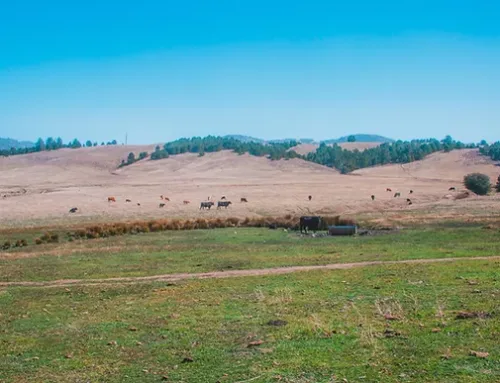Purchasing real estate involves decisions that can affect your entire life. At a minimum, the purchase of real property is stressful enough without the potential complications that could arise from uninformed assumptions and decisions made when assessing the purchase of rural property. The purpose of this article is to identify a few of the nuances that should be on everyone’s list to consider when purchasing rural property.
If there will be a commute, the commute is not to be underestimated. The good news is that, from just about anywhere in the rural area of San Diego County, the traffic will be moving at the speed limit! Many rural denizens figure out a way to make their commute productive; electronic books, phone calls, etc.
Proximity to services is another consideration, with medical facilities being at the top of the list. Although most rural communities have some variety of general medical services, hospitals are 45 minutes to an hour by car from most rural areas.
Fire services are far more effective in the rural environment than what most people believe. A variety of different cooperating agencies are available for fire protection. We are often asked how difficult it is to get fire insurance in the backcountry. The reality is obtaining fire insurance is difficult no matter where you live in Southern California. In rural areas, there are fewer options, but insurance is available. As a last resort, the state sponsored California Fair Plan is available.
Grocery shopping, fuel, and other supplies are typically not a major issue for most people, so long as planning on a weekly basis is the routine. Generally speaking, there are small independent grocery outlets in most of the smaller communities. For major shopping, larger communities support major grocery chains that are well within an hour’s drive from most rural locations.
Neighbors and the neighborhood being considered are more important to some people than others. Neighbors are a very important consideration to me. One rogue neighbor can ruin your sanctuary! It is not a bad idea to monitor the activities in the neighborhood under consideration on a weekend day and night. If the opportunity to speak with a neighbor arises, have a conversation. I have found neighbors to be very willing to share details about living in the neighborhood.
Once all of the above considerations are vetted, the real work begins. The next group of considerations will likely require the expertise of a seasoned real estate agent, or an agent working under the supervision of an expert. This phase is known in the real estate industry is known a “due diligence.” Here is a brief explanation of some critical investigations that should occur with the purchase of rural property.
Legal Parcel
The question as to whether or not the property under consideration is recognized by the County as a legal parcel is important if the property is vacant land or has unpermitted structures. The feasibility, and costs involved to correct this issue are potentially open-ended.
Legal Status of Improvements
Unpermitted improvements in the rural areas are far more common than one might think. Checking with the appropriate governing agency to determine the legal status of what is constructed on a property is a necessary first step on any purchase of rural property.
Property Boundaries
Knowing the property boundaries is important in maintaining positive neighborly relations. Identifying and addressing encroachments, or other irregularities involving property boundaries, should be done with every transfer of real property.
Access
If the property being considered is not contiguous with a public road, legal, documented access needs to be investigated. This does not mean that all properties must have legal documented access, because some properties never will. Landlocked properties are very common in rural areas. Properties landlocked by government agencies (Forest Service, BIA, etc.) may not be candidates for documented access, but can still be worthwhile investments if priced to reflect a lack of legal access.
Road
Roads can be very expensive to construct and/or maintain. In some cases, the cost of a road can exceed the value of the land. Road maintenance can also come with a repetitive expense if it was not properly graded when it was constructed. On rural roads, road maintenance agreements are often record on title. The cost required to participate in the road maintenance is an expense which should be known before the removal of contractual contingencies.
Drainage
Where water goes when it rains heavily is good to know! In most cases, people in Southern California are closing escrow while the sun shines. What happens during excessive rain is good to anticipate so corrective action can e taken in order to avoid property damage and disruptions to your daily life.
Foliage and Soil
Foliage and soil should be evaluated in terms of how sustainable any development on the property may be. An expert evaluation of plants and general soil conditions should be considered whether buying vacant land or a developed property. For example, in many areas across the nation, a warming climate is causing large-scale die off of mature trees. Locally, many old oaks are unable to survive due to a lack of water, which allows organisms to accelerate the demise of large stands of trees. In some cases, the expense to remove trees, in an effort to mitigate the spread of insects, can be a significant on-going expense.
The Basic Standard Inspections
Standard inspections for the purchase of rural property should include the following:
The water system, whether public or private, should be evaluated. The cost of public water in light of the property demands is important. Private systems should be evaluated in terms of water productivity and quality. A schematic of the system is also valuable knowledge.
Septic certifications require the pumping, inspection, and performance of private effluent disposal systems. Also, an inspection of trees growing near and around the tank and leach field should be kept in mind for any potential future issues.
Powering the property may be a public utility or a private solar/generator system. Knowing how to use and maintain a private system is imperative. Also, the cost of a private system may vary significantly. When purchasing vacant land, assessing the cost for establishing public power on the site is important, as it can be cost-prohibitive to do so in some cases. An estimate to acquire public power, whether the intent to build or not, is good practice while in the due diligence phase of the purchase.
Rural communication options are improving, but still somewhat limited. If high-speed Internet is important to you, do not forget to investigate your options.
A standard home inspection for residential property will evaluate the general condition of the foundation system and other systems involved with the construction of the improvements on the property. A home inspection should be considered for every purchase of improved property.
Value
Each property is unique. The aforementioned considerations represent common aspects of rural property. However, any given property may have unique issues to assess. For this reason alone, selecting an experienced brokerage to assist in the investigation process of rural properties provides expertise and guidance throughout the process of purchasing your dream property.
Thanks to Red Hawk Realty for creating these great video for us.
RED HAWK REALTY
Donn Bree, PHD Broker / Owner
Certified Eco Broker specializing in ranches, homes, land and loans. Providing experienced, professional service with land mitigation, trust deeds and consulting. In-house mortgage company and marketing team.
(800) 371-6669
21887 Washington Street
P.O. Box 188, Santa Ysabel, CA 92070
www.donn.com






I am looking to buy a home in Julian- this article was very helpful and informative 🙂 Thank you!
I just purchased 4 acres of raw land in Julian, it has water and electric, and I will start building a new home!
http://www.julianbutterfly.com
Thanks
Just visited your site. Wonderful and WELCOME!!